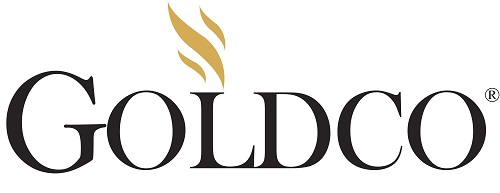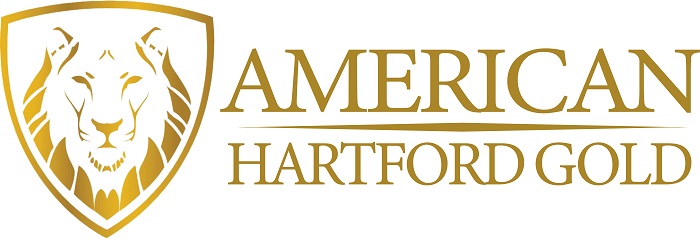Last Updated on February 15, 2024 by Ben

SEP IRA is a cost-effective plan allowing self-employed individuals to have an excellent retirement plan. Like me, you will find this extremely helpful for long-term investments.
The employer is the one responsible for the contributions. However, employees can still open their own IRA simultaneously with this account. In this article, let’s learn more about how it works and the SEP IRA contribution deadline in 2022.
Augusta Precious Metals



www.augustapreciousmetals.com



Star Rating
Augusta Precious Metals is a trusted company in the industry that specializes in 401(k)s and gold rollovers. They are a great company if you are considering investing in bullion coins and bars. However, their steep minimum investment of $50,000 may be too expensive for those just starting in the field.
The company provides total security for your precious metals assets as they store them in an insured Delaware depository.
?>
Pros
-
- Lifetime customer support
- No hidden fees
- Secured storing options
- Provides educational resources to clients
Cons
-
- Lengthy onboarding process
- Steep minimum investment
Goldco



www.goldco.com





Star Rating
Goldco has an excellent reputation among its customers. They offer several products and help their clients have a better retirement future. They started selling gold and silver but soon expanded to providing various investment options.
Their minimum investment is $50,000, which may cause potential clients to choose other companies with a lower cost. However, they remain one of the country’s most trusted precious IRA companies.
>
Pros
-
- First-year fees are waived
- No pushy-face advisors
- Knowledgeable regarding the market and the industry
- Genuinely concerned about your retirement plans
Cons
-
- No other precious metals option other than gold and silver
- High minimum investment cost
American Hartford Gold



www.americanhartfordgold.com





Star Rating
American Hartford Gold knows precisely how to ensure that you will save for a secure and comfortable retirement life. They were listed as the #1 gold company in the Inc. 5000’s fastest-growing private companies.
Their verified customers have given them great reviews across different platforms. This only shows how good of a company they are and how well they treat and guide their clients.
>
Pros
-
- Complete cost disclosure
- Special deals available
- Provides specialists and educational materials
- Top customer service ratings
Cons
-
- No shipment available outside the country
- The price is not listed on the website
Birch Gold Group



www.birchgold.com





Star Rating
For over 20 years, Birch Gold Group has provided exceptional services and products to those who want to invest in stable assets such as precious metals. Upon signing up, they provide informational kits to their clients so they will be able to further understand what they can expect from the market.
>
Pros
-
- Continuous assistance is provided
- Positive reviews from verified clients
- Reliable service
- Provided educational materials
Cons
-
- The expensive minimum investment for non-IRA purchases
- Possible hidden charges
The Basics of SEP-IRAs
SEP plans allow business owners to save for their retirement period and their employees. This type of plan can be accessed by self-employed individuals and businesses of any size.
Business owners can invest money for each employee in this plan, which you can manage with little paperwork. There are also no annual filing rules that you’ll have to worry about.
Tax-deductible contributions are allowed in a SEP-IRA. It enables your earnings to grow tax-deferred so you will get a larger amount on your retirement. Upon withdrawal, neither your gains nor the initial amount of money you invested will be taxed.
Additionally, they offer funding flexibility from year one to the next. This can be extremely helpful for your business to have a real winner with fluctuating fortunes.
If your company has a stellar year, you can invest up the SEP-IRA or choose not to put any amount in it if the year is a little bit tight. The assets held in this account are treated like traditional IRA assets following the law.
Although this retirement plan is popular, especially for self-employed individuals, it is not perfect for everyone.
Advantages of SEP-IRAs
A good way to save for retirement
SEP-IRA is a good retirement plan to invest in if you are self-employed. It includes many options for tax-advantaged savings, which will be valuable in your retirement period.
Easy to set-up
SEP IRAs are much easier to set up than other existing IRAs. A broker can help you with the process and guide you through a series of simple steps after filling out only one IRS form.
Tax-deferred
All of the contributions you will make for this account is pre-tax, which means the initial amount is the only one that will be taxed. You will receive a tax deduction today, and you will only be required to pay your taxes upon withdrawal.
Flexibility
This retirement account does not require yearly contributions for you and your employees.
Bigger contributions
The contribution limit for SEP IRAs is relatively higher than for Roth and traditional retirement accounts. It is also more than what you can contribute to a 401(k).
Disadvantages of SEP IRAs
No catch-up distributions
If you are above 50 years old, there will be no catch-up available for SEP IRAs similar to 401(k)s.
Employees should be treated the same as you
This type of IRA features an employee-only contribution. The employees of the company cannot make their own contributions. As the owner, you must contribute the same percentage from your employee’s compensation as you do to your SEP account.
No Roth option is available
In this type of IRA, enjoying tax-free withdrawals is not available since it doesn’t have a Roth option. Your money will grow tax-deferred, but you will still have to pay the taxes when you begin taking contributions.
You are also subjected to required minimum distributions later.
>
>
>
How to Open a SEP IRA
Opening a SEP IRA is relatively easy and simple. Here are the basic steps for opening a SEP IRA:
1. Fill out a formal written agreement by signing one of the following documents:
-
- IRS-approved prototype SEP (you can get this from insurance companies, banks, and other qualified institutions)
- Individually designed SEP plan document
- IRS model SEP using Form 5305-SEP
2. Provide employee eligibility alongside the information about the SEP. If you used Form 5305-SEP, it should include a copy. You can see the instructions listed in Form 5305-SEP itself. You need to provide the same information if you used the individually designed SEP or the prototype SEP.
3. Set up the SEP IRA for each employee with an insurance company, bank, or other qualified financial institution. Each employee should be able to own and control their own SEP IRA.
Instead of sending the form to the IRS, you can use a broker to do the task for you. You can always reach out to one, and they will help with anything you need in setting up the account.
However, reviewing and comparing custodians before finalizing your decisions is important. You should always measure the fees, minimum investment, and options they offer. You should also find out how your employees will be able to access their accounts and how you can add other people in case your company expands further.
How to Invest in a SEP IRA
It is important to clarify that SEP IRA is only a retirement account, not an actual investment. In investment accounts, the age you plan to retire and your risk tolerance are major players in the type of assets you can buy and invest in. When choosing your available investment options for your portfolio, you should carefully consider your future.
Most asset allocation models recommend that you weigh your portfolio more toward stocks when you are young. As you move closer to your retirement age, it is then recommended that you shy away from risky investments and focus more on stable assets.
Based on history, stocks tend to generate larger returns for long-term investments but suffer more in the short term.
If you are working with an account provider, it would be better if they offered a variety of stocks, mutual funds, and bonds that you can choose from to include in your account.
Who Qualifies for a SEP IRA?
Here are the requirements for SEP IRA eligibility for employees:
-
- 21 years old and above
- Must be working for the company for at least 3 to 5 years
- Have received compensation for the years 2021 and 2022
SEP-IRA Contribution Rules
Employers are required to make the contributions to their employees’ SEP that are proportional to their wages. Each of them will receive their contributions of the same percentage. You and your employees should have the same contribution percentage based on salary. If self-employed, your contribution will be based on net profit minus half of the self-employment tax.
SEP requires no yearly contributions. When you do, you should do them not only for your account but for all of your eligible employees as well. SEP cannot have a last-day-of-the-year requirement for employees, so you should also contribute to participants not employed on the last day of the given year.
If an employee is over 70 years old and a half, they are still considered eligible for contributions. They can also begin making withdrawals at this age.
Having a SEP IRA does not limit you from contributing to other IRAs. You just have to ensure that your plan allows it. If you are on or over the age of 50, you have to make IRA catch-up contributions that follow regular IRA contribution limits.
You can deduct the limit amount of the regular IRA contribution on your income tax return and the amount that you can contribute to your other existing IRAs.
SEP-IRA Tax Implications
Deducting SEP IRA contributions on your business’ tax return can be 25% of your compensation. Employees will not be subjected to taxes based on the contributions made by their employer. SEP IRA contributions are not included in employees’ gross income. For self-employed individuals, the IRS provided different steps to determine their maximum deduction.
If you make excess contributions to a SEP IRA, this will be considered part of the employee’s gross income. You need to withdraw that amount before the due date of your listed federal tax return to avoid a penalty. Failing to do so will be faced with a 6% tax on the excess contributions. Your employer will also face a 10% tax on the excess amount.
SEP IRA Contribution Limits
In a SEP IRA, the employees do not make contributions. The owner is responsible for contributing to their employees, especially if they are a small business. However, employees can still contribute to a separate Roth IRA or other forms of account that can hold retirement assets.
The following are the limitations for SEP IRA contributions:
1. Employers can contribute to the SEP-IRA of their employees, either for 25% of their compensation or $61,000 (whichever of the two is less.) They can consider up to $305,000 of their compensation. These limitations reflect the 2022 tax year and are applied to employers of small businesses or self-employed people. In 2021, the contribution limit stands at 25% of earnings up to $58,000.
2. Individuals with a Salary Reduction Simplified Employee Pension (SARSEP) plan established before 19997 are entitled to an elective salary deferral contribution. If you still have this kind of plan, you can opt for elective deferral contributions up to $20,5000 or 24% of your total compensation (whichever of the two is less.)
All contributions must be made in cash. You cannot make catch-up contributions or elective salary deferrals to SEP plans. You should also know that you cannot contribute property to a SEP IRA. If you accidentally contributed more than the allowed limit, you can always visit the IRAS website to find out how to correct the mistake.
Contribution Deadline for SEP IRAs
The deadline for your SEP IRA contributions is around April 15 of the following year, next to your contribution year. For next year, the deadline will be on April 18, 2023, so if you have a tax extension, you should make the SEP contribution by the end of the given period.
If you somehow missed the deadline, you cannot deduct any contribution from the year’s return, but you are allowed to do so on the following year’s tax return. To report the contributions you made, you can use Form 5498.
Final Thoughts – Sep IRA Contribution Deadline 2022
That’s everything you need to know for the SEP IRA contribution deadline of 2022. There are many ways to ensure a good retirement life, whether you are a self-employed person or an owner of a small business.
If you still find it quite challenging to understand how the SEP IRA plan works, you can always reach out to a broker or IRS to get a better view of it.


